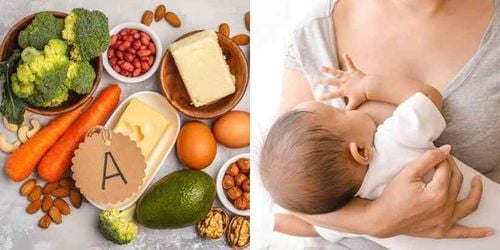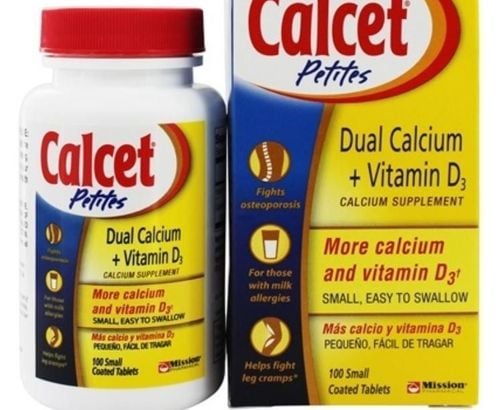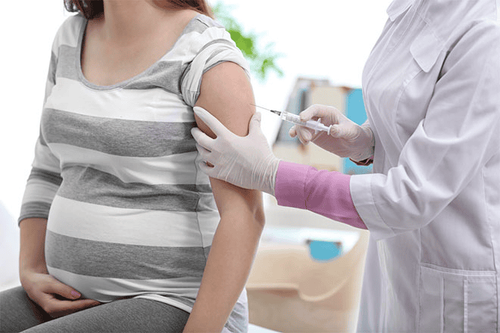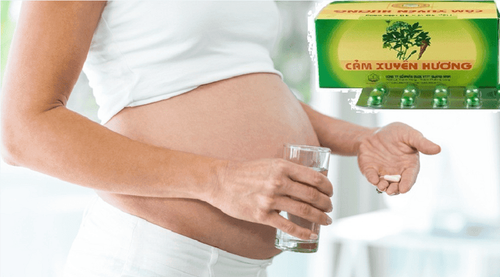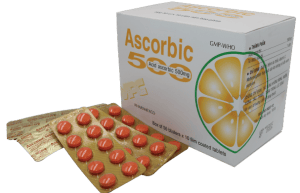This is an automatically translated article.
The article is professionally consulted by Master, Doctor Trinh Thi Thanh Huyen - Department of Obstetrics and Gynecology - Vinmec Hai Phong International General Hospital.
Pregnant women have higher nutritional and energy needs than the general population. Vitamins and minerals are essential components of a pregnant woman's diet. Therefore, proper understanding of vitamins and minerals during pregnancy will help you have a healthy pregnancy
1. Vitamin and mineral requirements during pregnancy
While in the fetus, the nutrition of the baby depends entirely on the nutrition of the mother. A mother with a good diet will help her baby develop healthy and comprehensive, and the mother also has better resistance, enough strength for the birth process and quickly recovers after birth. The need for many vitamins and minerals increases during pregnancy. Here are some essential vitamins and minerals during pregnancy:Calcium is needed for the formation of bones and teeth in the fetus. The calcium requirement in pregnant women is about 800-1000mg per day. Calcium is abundant in shrimp, crab, milk, fish, beans, cheese. In addition to calcium supplements through the diet, pregnant women can use milk or calcium tablets.
Folic acid: also known as vitamin B9. Folic acid is abundant in liver, dark green vegetables, wheat germ, yeast, egg yolk, orange juice. The role of folic acid is essential for pregnant women. Folic acid deficiency in pregnant women can lead to megaloblastic anemia and low birth weight in babies. Folic acid is also needed in pregnant women to prevent neural tube disorders in infants, 3 months before pregnancy and the first 3 months of pregnancy, about 400mcg/day.
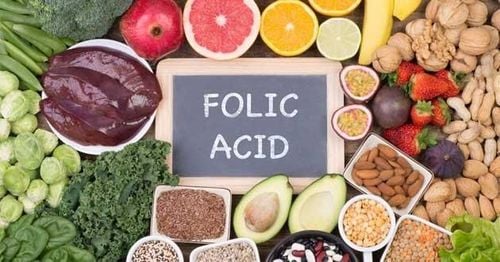
Acid folic rất cần thiết cho phụ nữ mang thai
If pregnant women have good nutrition, make sure to get enough vitamin A through food (about 800 mcg/day), there is no need to supplement vitamin A with drugs. Vitamin A is found in cod liver oil, butter, milk, and egg yolks. Vegetables and fruits such as carrots, gourds, squash, gac fruit, tomatoes, spinach, amaranth, ... contain provitamin A, which is carotene, which when entering the body will convert to vitamin A.
Vitamin D : necessary for the absorption of minerals such as calcium, phosphorus and promote bone formation. Vitamin D deficiency will lead to rickets in the mother's womb or babies born normally but with permanent fontanel. Excess vitamin D also causes many consequences such as hypercalcemia, fetal malformations, kidney damage.
The need for vitamin D in pregnant women is about 10mcg/day. Vitamin D can be supplemented through foods such as fish, eggs, milk, cheese or vitamin D-rich functional foods. In addition, there are provitamin D precursors in human skin, which when exposed to UV light will convert into active vitamin D.
Vitamin B1: plays an important role in glucose metabolism. Vitamin B1 is abundant in brewer's yeast, rice bran, wheat, cereal grains, nuts, pork, beef, chicken... Nuts need to store vitamin B1 for the germination process. Therefore, rice is not milled too white, not moldy, rotten and grains are a rich source of vitamin B1.
The need for vitamin B1 increases with the amount of glucose ingested. During pregnancy or lactation, the need for vitamin B1 also increases (about 0.6mg/1000 kcal). Pregnant women need to get enough vitamin B1 to avoid the risk of edema.
Vitamin B2 : plays an important role in the process of hematopoiesis, promotes height, supports vision and nervous system development of the fetus. Some studies have also shown that vitamin B2 deficiency during pregnancy increases the risk of preeclampsia. Vitamin B2 is abundant in milk, bread, vegetables, beans... The need for vitamin B2 in pregnant women is about 1.4 mg/day.
Iron: plays an important role in pregnancy, necessary for the process of hematopoiesis and cell nucleation. Iron deficiency in pregnant women will lead to iron deficiency anemia, affecting oxygen transport in both mother and fetus, increasing the risk of premature birth, postpartum infections, loss of appetite, etc.
Iron is abundant in meat, fish, egg yolks, molluscs such as clams, oysters, snails, mussels, cereals, beans, dark green leafy vegetables, pumpkins, animal viscera and especially is the period. Pregnant women should supplement about 60mg of elemental iron per day during pregnancy until 1 month postpartum. Iodine is a micronutrient necessary for the development of the body, participating in the synthesis of thyroid hormone. Iodine deficiency easily leads to goiter, dullness, brain damage. Iodine deficiency in pregnant women can cause spontaneous abortion, premature birth and stillbirth. Newborns can have birth defects such as paralysis of the arms and legs, slurred speech, deafness, muteness, and crossed eyes. The iodine requirement of pregnant women is about 175-200 mcg of iodine per day. The best source of iodine is foods from the sea such as fish, crabs, shrimp, oysters, seaweed... Besides, pregnant women need to use iodized salt to supplement enough iodine.
Zinc : Supplemental zinc necessary for the process of forming, repairing and perfecting the function of DNA. Zinc deficiency will lead to infertility, premature birth, miscarriage, pregnancy toxicity or may be born prematurely, the fetus is born abnormally. The zinc requirement of pregnant women is about 15mg/day. Zinc is found in shellfish, shellfish, oysters, cereals, milk and dairy products.
Vitamin C: Vitamin C acts as a reducing agent in collagen formation reactions, helps heal wounds, increases resistance, supports iron absorption, thereby helping to prevent and support the treatment of anemia. iron-deficient blood. Vitamin C deficiency can cause scurvy with manifestations of bleeding, gingivitis, easy tooth loss, joint swelling.
Vitamin C is abundant in sour fruits (lemon, grapefruit, oranges), fresh vegetables, tomatoes. The daily requirement of vitamin C increases with infection, pregnancy or lactation... The need for vitamin C for pregnant women is 80mg/day and for nursing mothers is 100mg. Therefore, to meet the need for vitamin C during pregnancy, in addition to choosing foods rich in vitamin C, pregnant women should take a multivitamin. In order to fully meet the above vitamins and minerals, in addition to choosing foods rich in micronutrients, pregnant women should take a multivitamin and mineral tablet for pregnant mothers daily under the guidance of the doctor. Nutrition expert.

Khám thai định kỳ đảm bảo sức khỏe mẹ và bé tại Vinmec
2. Notes on diet and activities during pregnancy
Pregnant women should not be excessively abstinent. The diet needs to be varied and full of nutrients, especially paying attention to eating a lot of vegetables and fruits to supplement vitamins, minerals and fiber for the body. Avoid stimulant foods such as alcohol, coffee, tobacco, hot and spicy spices such as chili, pepper, garlic, vinegar Should choose fresh, raw foods with clear origin, ensure food safety. Food hygiene and safety If you are pregnant, you should divide your meals and spread them evenly throughout the day. Avoid strong-smelling foods. Pregnant women should not work too hard, they should only do it gently and moderately. The last months of pregnancy need rest to help the baby gain weight and the mother to have strength for the labor process. Keep your mind at ease, avoid anxiety and stress. Keep the living environment fresh, cool, away from dust, smoke. Go for regular antenatal check-ups at medical facilities. Complete vaccinations to ensure the health of both mother and baby. Nutrition during pregnancy of the mother has a very important role, is a prerequisite for giving birth to healthy and developing babies. Hopefully the above article will help mothers and those who are about to become mothers to have a proper understanding of nutrition during pregnancy to ensure the health of both mother and baby.
Please dial HOTLINE for more information or register for an appointment HERE. Download MyVinmec app to make appointments faster and to manage your bookings easily.




